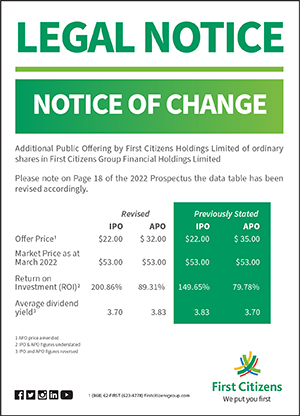The future of Digital Currencies
Commentary

Digital vs Cryptocurrency
Digital Currency is the electronic form of traditional money, stored in a digital wallet and traded or exchanged on digital computer systems over the internet. Cryptocurrency is a type of digital currency that is highly encrypted and exists through decentralized networks based on blockchain technology, which is essentially a ledger that stores all transactions. Up until 8 June 2021, only traditional fiat money was accepted as legal tender and backed by centralized authorities. This changed when El Salvador’s legislature passed a bill making them the first government to accept Bitcoin as legal tender along with the U.S. dollar.
The first cryptocurrency, Bitcoin, was launched in 2009 by the pseudonymous Satoshi Nakamoto and was designed to act as a medium of exchange for online business transactions. Bitcoin was intended to be completely decentralized, with no central server or trusted parties acting as an intermediary, thus eliminating middleman activity. Trust in cryptocurrency transactions are established through transparency, as all transactions are made public on a distributed ledger allowing users access to oversee all transactions made.
The value of Bitcoin peaked to almost USD65,000 in mid-April 2021 before falling to USD30,000 by June 2021. Today, there exist over 10,000 different cryptocurrencies with some having little to no following while others like Bitcoin and Ethereum, enjoy immense popularity.

How Is Cryptocurrency Traded?
Just as stocks are bought and sold on stock exchanges across the world, cryptocurrencies are traded online on cryptocurrency exchanges 24/7 using fiat currency or other cryptocurrencies and held in digital wallets. A digital wallet is an app that is stored on a holder’s computer or phone, or in the cloud and serves as a virtual bank account that allows holders to pay for goods and services or simply hold the currency in hopes of a rise in value. Holdings can only be accessed in the digital wallets through the use of a private key which is effectively a password that allows access.
An account is created on an exchange and real money (US dollars or another cryptocurrency) is transferred into the account to purchase cryptocurrencies. Centralized cryptocurrency exchanges acts as the intermediary that matches buyers and sellers and has largely the same characteristics as centralized stock exchanges including placing buy and sell orders. Some popular exchanges include Coinbase, Binance.US and Gemini. Cryptocurrencies can also be purchased via traditional brokers such as Robinhood and TradeStation. Cryptocurrencies can also be traded directly from other owners using peer to peer tools like Bisq and Bitquick.
The estimated value of all cryptocurrencies currently is about USD1.37 trillion as at June 23 2021, down from USD2.2 trillion in April according to CoinMarketCap, a cryptocurrency data and analytics provider, compared to the market capitalization value of US stocks that exceeds USD20 trillion.
Top 10 Largest Trading Cryptocurrencies by Market Capitalization as at 23 June 2021

Regulations (or lack thereof)
To date, cryptocurrencies have received varied regulatory treatments across a number of countries. While many countries permit the buying and selling of cryptocurrencies including the US and the UK, certain countries such as China and Bolivia have placed an outright ban.
El Salvador, under the legislation, will see bitcoin become legal tender by September 2021 following the approval by congress on 8 June 2021, allowing Bitcoin to be a medium of payment. Following El Salvador’s vote to adopt Bitcoin as an official currency, Paraguay intends to follow suit as a bill is set to be presented in congress in July that would mirror El Salvador’s new cryptocurrency law.
This hesitance arises from the technology’s decentralized nature and its anonymity that may promote an environment which is limited in its ability to identify and screen out criminal activity including money laundering, tax evasion and investment fraud, as it is impossible to know who is on the other side of a transaction. This behaviour is further stoked as cryptocurrency developers are now offering anonymity enhanced cryptocoins (AECs) like Monero, Zcash, and Dash which are designed specifically to make tracking transactions more difficult.
Environmental concerns as it relates to “mining” cryptocurrency is also a growing concern. Mining crypto, like Bitcoin, is the process used to enter new tokens (cryptocurrency) into circulation. The process requires a considerable amount of energy via the use of computer systems which in most cases use fossil fuels as their energy source.
Digital and Cryptocurrency in the Caribbean
In the Caribbean, there has been advances in the digital currency space, with the Bahamas launching the world’s first ever central bank digital currency, the Sand Dollar in October 2020. In March 2021, further steps were made as the Eastern Caribbean Central Bank became the first currency union central bank to issue digital cash – DCash.
The Sand Dollar is a digital representation of the Bahamian dollar and thus is a direct liability of the Central Bank of the Bahamas. This initiative was undertaken with the aim of insulating the Bahamian’s financial system from constant disruptions that come with natural disasters, thus allowing citizens to conduct transactions in the absence of a bank or internet connection.
Similarly, DCash is the digital version of the Eastern Caribbean dollar. It is available in four of the eight member countries of the Eastern Caribbean Currency Union – St. Lucia, Grenada, Antigua and Barbuda and St. Kitts and Nevis.
Locally, the Central Bank of Trinidad and Tobago (CBTT) is currently focused on regulating payment that involves the use of digital assets. This was revealed in their webinar in June 2021 titled “Improving the Payments System in Trinidad and Tobago”. The CBTT also indicated that the exploration of a Central Bank Digital Currency (CBDC) is on the horizon.
Despite being pioneers of Central Bank Digital Currencies (CBDC), cryptocurrency utilization in the Caribbean is limited, when compared to its increasingly prevalent use in the developed regions. The decentralized and anonymous nature of cryptocurrency have created challenges for governments as they seek to allow the legal use of digital currency and simultaneously protect users from criminal activity.
Investing in Cryptocurrency
Returns in the cryptocurrency market have been remarkable and is very attractive for investors. However, caution must be taken as there are heightened risks when compared to traditional asset classes and regulatory issues to consider. In the absence of the backing by a centralized issuing authority, a cryptocurrency’s value is based largely on demand, in essence, the value market participants place on them via their transactions. As a result, if there is a loss of confidence, trading activities and in turn, the cryptocurrency’s value will drop, thus making it extremely volatile.
Investors in stocks and bonds receive periodic cash flows in the form of dividends and coupon payments. In contrast, cryptocurrencies do not generate cash flows, which can hamper investment objectives.
The anonymous nature of transactions conducted in cryptocurrency makes the exchanges a target for hackers as it is difficult to track and recover cryptocurrency if it is stolen. For example, in August 2016, nearly 120,000 units representing USD72 million-worth of bitcoins were stolen from the Bitfinex exchange in Hong Kong, which led to an immediate 23% drop in pricing. Apart from cryptocurrency being stolen, investors are also vulnerable to losing access to their holdings if their private key is lost or forgotten.
In addition, the lack of consistent regulation governing the market has resulted in varying taxation treatment across jurisdictions. For example, cryptocurrencies may be considered assets in certain regions and currency in others, hence will warrant different tax treatments. The investor must seek tax advice regularly to ensure the correct tax treatment on their investments.
If the risks are deemed too high, investors may consider the potential to profit from the rise of cryptocurrencies through the purchase of stocks of companies such as Coinbase or invest in an exchange that facilitates the trading of crypto futures like CME Group.
DISCLAIMER
First Citizens Bank Limited (hereinafter “the Bank”) has prepared this report which is provided for informational purposes only and without any obligation, whether contractual or otherwise. The content of the report is subject to change without any prior notice. All opinions and estimates in the report constitute the author’s own judgment as at the date of the report. All information contained in the report that has been obtained or arrived at from sources which the Bank believes to be reliable in good faith but the Bank disclaims any warranty, express or implied, as to the accuracy, timeliness, completeness of the information given or the assessments made in the report and opinions expressed in the report may change without notice. The Bank disclaims any and all warranties, express or implied, including without limitation warranties of satisfactory quality and fitness for a particular purpose with respect to the information contained in the report. This report does not constitute nor is it intended as a solicitation, an offer, a recommendation to buy, hold, or sell any securities, products, service, investment or a recommendation to participate in any particular trading scheme discussed herein. The securities discussed in this report may not be suitable to all investors, therefore Investors wishing to purchase any of the securities mentioned should consult an investment adviser. The information in this report is not intended, in part or in whole, as financial advice. The information in this report shall not be used as part of any prospectus, offering memorandum or other disclosure ascribable to any issuer of securities. The use of the information in this report for the purpose of or with the effect of incorporating any such information into any disclosure intended for any investor or potential investor is not authorized.
DISCLOSURE
We, First Citizens Bank Limited hereby state that (1) the views expressed in this Research report reflect our personal view about any or all of the subject securities or issuers referred to in this Research report, (2) we are a beneficial owner of securities of the issuer (3) no part of our compensation was, is or will be directly or indirectly related to the specific recommendations or views expressed in this Research report (4) we have acted as underwriter in the distribution of securities referred to in this Research report in the three years immediately preceding and (5) we do have a direct or indirect financial or other interest in the subject securities or issuers referred to in this Research report.

